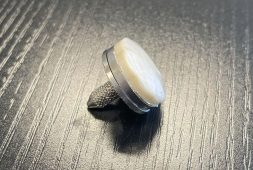
Exciting advancements in the realms of neurostimulation offer a new hope for elderly individuals grappling with Alzheimer’s disease, as a recent study reveals the potential of transcranial direct current stimulation (tDCS) in enhancing memory and overall cognitive performance.
Researchers found that implementing twice-daily tDCS sessions lasting around 20 minutes each significantly improved cognitive functions in individuals living with Alzheimer’s.
The innovative tDCS technology involves the application of a constant, low-intensity electrical current to specific areas of the head using a device with two electrodes. This groundbreaking approach is not only gaining traction in various medical fields, including depression treatment, but also holds promise as a means to augment brain plasticity in Alzheimer’s patients by facilitating the formation of new neural networks – interconnected groups of neurons firing in unison.
Conducted by a team of researchers in China, the study enrolled 140 participants diagnosed with mild to moderate Alzheimer’s. The subjects were randomly assigned to either receive active tDCS sessions or a sham version in a control or placebo group. The treatment regimen comprised two daily sessions of low-intensity current, administered five days a week over a maximum period of six weeks.
All participants, aged 65 and above, had been living with Alzheimer’s for more than six months, exhibiting cognitive impairment with Mini-Mental State Exam (MMSE) scores below 26 (a score less than 24 is considered abnormal). The researchers targeted the prefrontal cortex, a brain region crucial for higher-order activities such as planning, decision-making, working memory, social behavior moderation, speech, and language control, with the application of tDCS.
To assess cognitive performance, the researchers employed the Alzheimer’s Disease Assessment Scale-Cognitive Test, focusing on language and memory, at the beginning of the trial, after two weeks, and once again after six weeks.
The findings were incredible, indicating significant cognitive improvement in individuals who received active tDCS after just two weeks of treatment. Notable enhancements were observed in word recall, recall of test instructions, and word recognition.
In contrast, the group subjected to the sham treatment did not exhibit similar cognitive improvements. Additionally, the study shed light on the impact of tDCS on cortical plasticity, revealing a noteworthy improvement in patients after six weeks of treatment.
First author Liu Xingxing, from the Zhejiang University in China, said, “Taken together, tDCS is a promising method for improving cognitive function with sufficient treatment.”
The authors wrote, “tDCS can significantly improve the working memory of older patients, and the stimulation changes the resting-state functional connectivity of the frontoparietal brain region.”
The discovery holds profound implications, suggesting that tDCS not only enhances cognitive functions in the short term but also contributes to the restoration of cortical plasticity in Alzheimer’s patients, potentially influencing the long-term trajectory of the disease.



